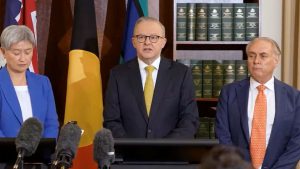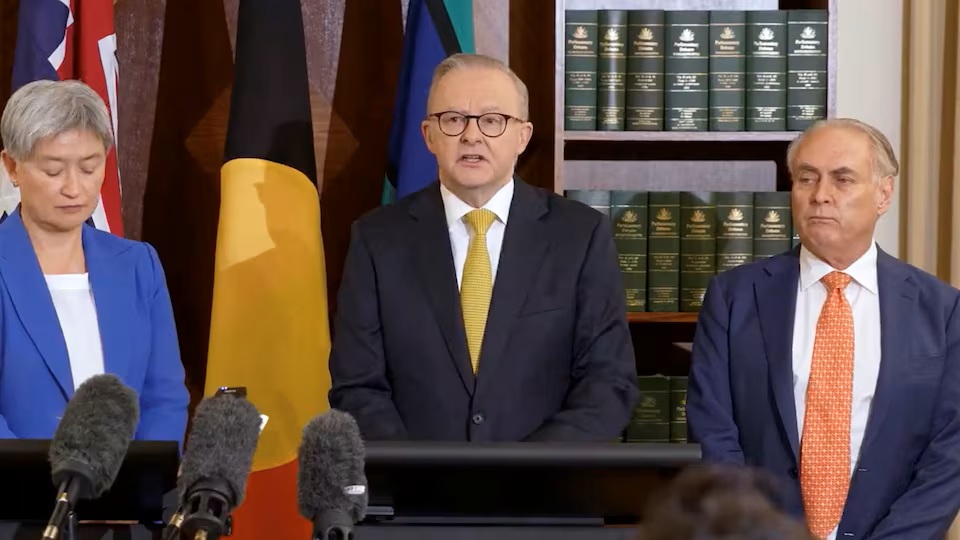Among the many absurdities of Donald Trump’s global trade war is the inclusion of Singapore and Australia on his naughty list.
The U.S. President slapped the 10% baseline tariff, which will apply to nearly all countries, on both with very little justification.
Neither state has, to use Trump’s ill-judged words, “looted, pillaged, raped and plundered” the United States. Far from it: Australia has, at almost $18 billion, one of the largest goods trading deficits with Washington; Singapore is not far behind at $13 billion. Both boast a free trade agreement with America.
The two are strong security partners for Uncle Sam, too. They are long-standing buyers of U.S. weaponry, have pledged to increase defence spending, and they provide bases for American troops.
In fact, there are now more of them on Australian soil than at any time since the end of the Second World War.
RELATED: Gold climbs as new Trump tariffs on auto sector stoke trade tensions
Sure, there are a few quibbles, like U.S. beef farmers’ access to the Australian market, which Trump complained about on his self-styled “Liberation Day” on April 2. But that’s small beer – and Singapore doesn’t even seem to have anything similar to warrant its inclusion.
That’s likely to make it hard to negotiate away the 10% tariff. In fact, Singapore Prime Minister Lawrence Wong last week told parliament he doubts, opens new tab that’s possible, adding if the duty were meant to target surpluses, his country’s tariff should be zero.
Of course, Trump may yet decide to make removing the blanket levy dependent on the willingness of partners to help Washington squeeze China, on which he has imposed a 145% import tax.
That would be a nightmare scenario. The People’s Republic is the largest export market for both small countries.

Canberra is particularly exposed, as China accounts for, at some $135 billion last year, around a third of all Australian goods sold overseas.
Such over-reliance has already proven risky: a 2020 spat over COVID-19’s origins prompted Beijing to put tariffs of up to 200% on imports of Aussie coal, wine, lobster and other products for several years.
The shock prompted companies like Treasury Wine Estates (TWE.AX), opens new tab and Whitehaven Coal (WHC.AX), opens new tab to find new customers abroad.
In response to Trump’s moves, Prime Minister Anthony Albanese’s government is now trying to revive a free-trade agreement with the European Union and woo countries from Indonesia to India to the United Arab Emirates.
RELATED: Eswatini’s economic stability at risk amid U.S.-China trade decoupling
Diversifying away from China makes more sense than ever but there are limits to how far Asia-Pacific countries can look beyond their backyard.
The Australian government on April 10 turned down a proposal from Beijing to “join hands” to counter U.S. tariffs.
The offer came in an article China’s ambassador to the country, Xiao Qian, wrote in The Age, a Melbourne-based newspaper.
Singapore’s Prime Minister on April 8 said the trade levies imposed by the U.S. President Donald Trump “are not actions one does to a friend”, echoing similar words spoken by Australian Prime Minister Anthony Albanese.
The Trump administration on April 2 said it would impose a 10% tariff on goods from Singapore and Australia, even though it has a trade surplus with both countries.


